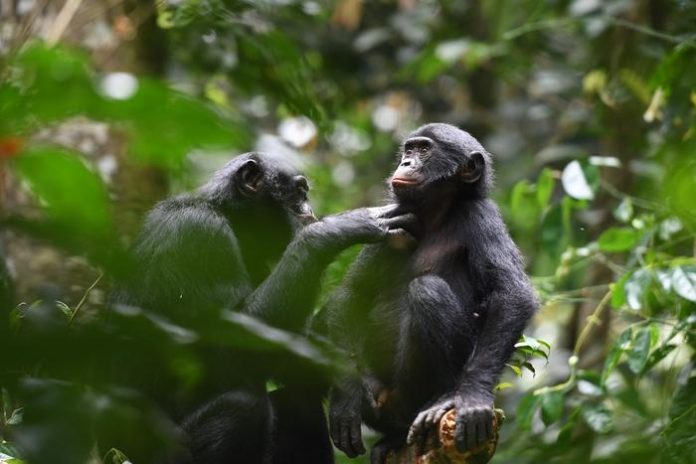A recent study published in Science challenges the conventional belief that robust cooperative relationships and resource-sharing across non-family groups are unique to humans. Researchers from Harvard University and the German Primate Center investigated pro-social behavior in bonobos, humanity’s close relatives, revealing that these primates exhibit cooperation beyond their immediate groups.
The study, which focused on bonobos living in the Kokolopori Bonobo Reserve in the Democratic Republic of the Congo, provided insights into their cooperative behavior. Unlike chimpanzees, a more studied primate relative, bonobos demonstrate remarkable levels of tolerance between different groups. When different bonobo groups interact, they often engage in activities such as traveling, resting, and feeding together, with no observed disputes leading to lethal aggression.
Dr. Liran Samuni, the lead author of the study, emphasized the preference of bonobos to interact with specific individuals from other groups, fostering strong ties between pro-social individuals. This selective interaction mirrors aspects of cooperation seen in human societies, challenging previous assumptions about the innate nature of group hostility and violence in primate evolution.
The study highlights that bonobos, despite living in remote and inaccessible areas, engage in cooperative behaviors without strong cultural influences. They share resources across groups, demonstrating parallels with human social cooperation. The researchers argue that the insights from bonobo behavior should prompt a reevaluation of theories suggesting that culture and social norms are necessary for cooperative relationships between groups to emerge. The findings indicate that constant warfare between neighboring groups may not be an evolutionary inevitability, challenging traditional perspectives on the origins of cooperation in primates.















